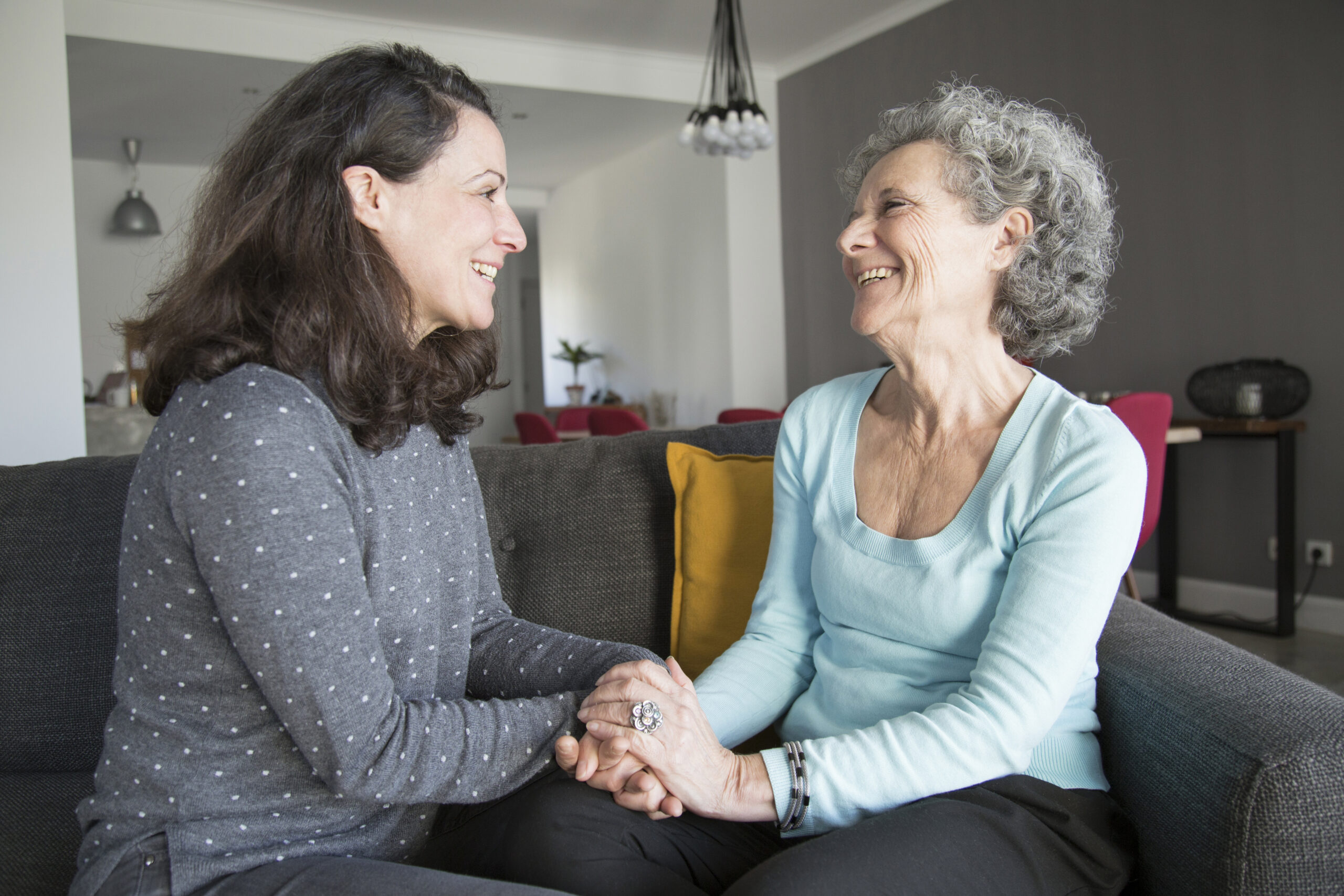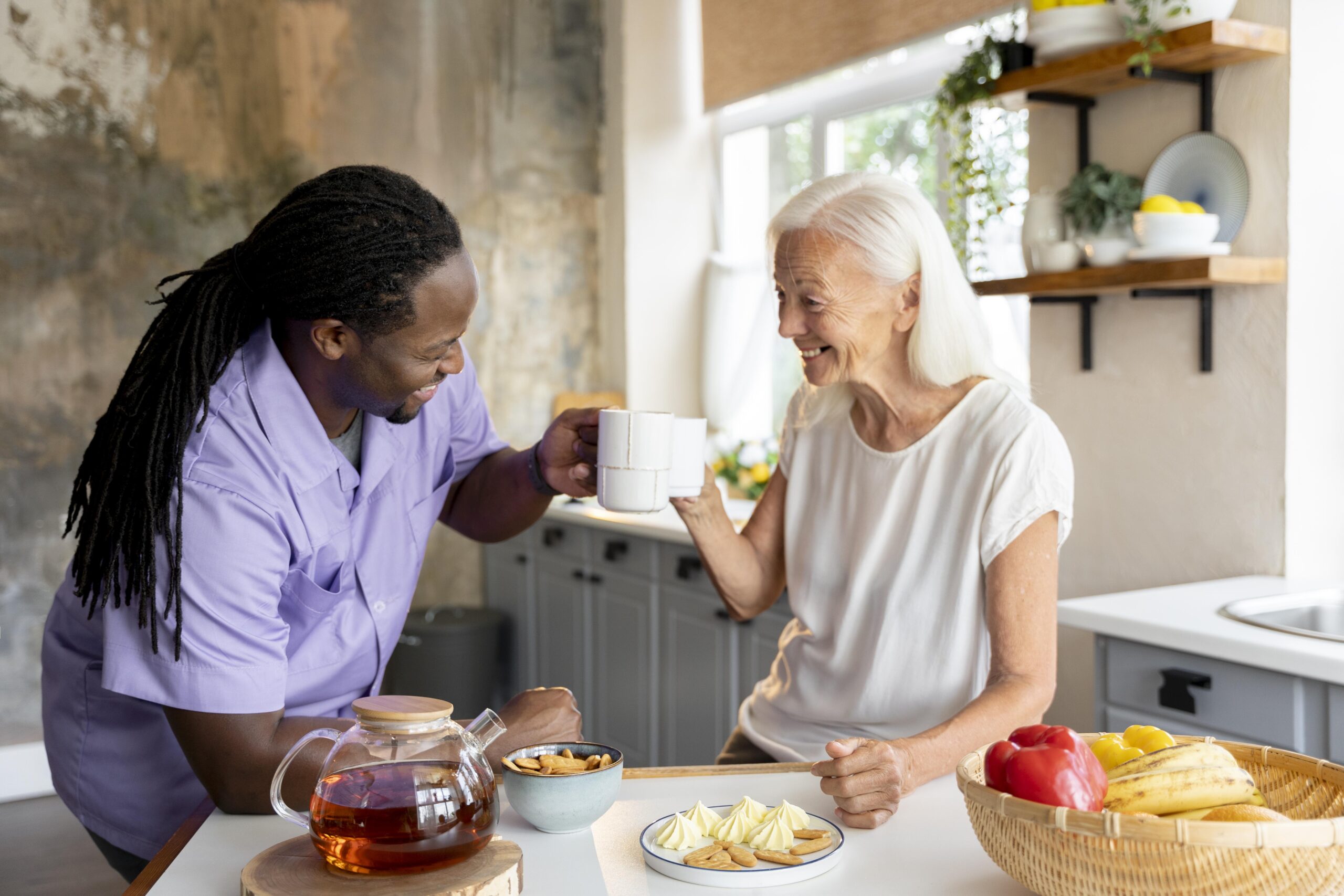Companion care transforms ordinary daily routines into meaningful connections that enhance seniors’ quality of life.
Research consistently shows that seniors receiving personalized companion care experience significant improvements in mental health, physical well-being, and overall life satisfaction compared to those receiving only task-based assistance.
Understanding this profound difference can guide your decisions for your loved one’s care.
What is Companion Care?
Companion care provides personalized support that addresses both practical needs and emotional well-being through meaningful human connection.
Unlike strictly medical home health services, elderly companion care creates a relationship-centered approach that combats isolation while supporting independence and dignity.
Research published in the Journal of the American Geriatrics Society demonstrates that companion care recipients experience significantly lower rates of depression and anxiety compared to matched controls receiving standard home care services without the companionship component.
Evidence-Based Elder Care Benefits: Turning Routines into Meaningful Moments
Companion care transforms ordinary activities through purposeful interaction:
Morning routines become opportunities for cognitive stimulation, with the Journal of Alzheimer’s Disease reporting that engaging morning routines can improve executive function measures by up to 23% in older adults.
Meal preparation and dining shift from potential isolation to social engagement, with research from Tufts University Nutrition Center showing that seniors who regularly share meals consume more nutrient-dense foods and have 30% lower rates of malnutrition than those eating alone.
Medical appointment support reduces missed appointments by 64% according to Medicare analysis data, while improving information retention and treatment adherence.
Household activities provide opportunities for light movement and engagement that, according to occupational therapy research, help maintain functional abilities longer than sedentary care approaches.
Personalized Attention: Science-Backed Approaches
Companion care services are designed not only to assist with daily routines but also to foster relationships that enrich both the caregiver and your loved one.
The benefits of elderly companion care are maximized when the care is personalized, taking into account the individual’s unique history, preferences, and needs.
A caregiver’s ability to connect with a senior on a personal level, by understanding their background, hobbies, and even their daily routines, creates a bond that goes beyond simply completing tasks.
This deeper connection fosters trust, encourages social engagement, and ultimately combats the isolation that many seniors experience.
Whether it’s adjusting the level of cognitive stimulation, introducing new activities, or providing extra assistance with physical tasks, personalized care ensures that your loved one continues to thrive, even as their needs evolve.
When care is personalized, it also ensures that the emotional and social aspects of a senior’s life are never neglected. It’s this combination of practical assistance and emotional support that enhances their overall health outcomes.
Recognizing When Companion Care Is Right For Your Loved One
For many families, determining the right time to introduce companion care can be challenging. Watch for these common indicators that your loved one might benefit from companion support:
- Social withdrawal or reluctance to participate in previously enjoyed activities.
- Expressed feelings of loneliness, boredom, or isolation.
- Noticeable changes in personal grooming or home cleanliness.
- Missed appointments or medication doses.
- Weight loss or changes in eating habits.
- Increased anxiety about living alone.
- Recent loss of a spouse, close friend, or pet.
- Decreased mobility or reluctance to drive.
Many families find that introducing companion care early, at the first signs of these changes, can prevent more serious decline and maintain independence longer.
Proactive companion care often prevents crises rather than simply responding to them.
Read more: How to Find the Best Companion Care
Having the Conversation: Approaching Companion Care with Sensitivity

For many families, the most challenging aspect isn’t recognizing the need for companion care; it’s discussing it with their loved one.
Here are compassionate approaches that have helped other families:
Focus on independence: Frame companion care as a way to maintain independence longer, not lose it. Explain how having support for challenging tasks actually preserves autonomy in other areas.
Start small: Suggest trying companion care temporarily or for limited hours. Many seniors who initially resist the idea form meaningful relationships with their companions and gradually welcome more support.
Involve your loved one in decisions: Whenever possible, include your loved one in interviewing potential companions and setting priorities for care. Having control over the process often eases concerns.
Address specific concerns: If your loved one worries about privacy, strangers in their home, or admitting they need help, acknowledge these feelings as valid and discuss how quality companion care programs address these concerns.
Many families report that their initial concerns about rejection or resistance were much greater than the reality once compassionate companion care was introduced.
Read more: When Your Parent Refuses Help: Navigating Resistance to Companion Care
The Journey Forward: What to Expect When Beginning Companion Care
Understanding what to expect when starting companion care helps ease the transition for everyone involved:
The matching process: Quality providers like Kizuna invest significant time in matching families with compatible caregivers based on personality, interests, background, and specific needs. This careful matching sets the foundation for meaningful relationships.
The adjustment period: The first few visits focus on building rapport and establishing comfort. Professional companions understand the sensitivity of entering someone’s home and life and approach this period with patience and respect.
Evolving care plans: As relationships develop and needs change, companion care adapts accordingly. Regular reassessment ensures the senior care planning continues to address your loved one’s evolving situation.
Communication systems: Expect regular updates about your loved one’s well-being, activities, and any concerns. Good companion care keeps families informed while respecting the client’s privacy and dignity.
Measured outcomes: Quality companion care programs regularly assess impact through both objective measures (medication adherence, nutrition status) and subjective ones (mood, engagement, satisfaction). These assessments help refine and improve care over time.
Families often report that what begins as “help” quickly evolves into a valued relationship that everyone looks forward to continuing.
Choose Kizuna: Your Partner in Exceptional Companion Care
At Kizuna, our approach to companion care services is grounded in both clinical research and human compassion.
Our caregivers are vetted and reference-checked, ensuring they provide evidence-based support alongside genuine connection.
Every caregiver we place is part of the top 10% of applicants. They are thoroughly screened, reference-checked, and chosen for both experience and empathy.
Our matching process goes beyond logistics; we look at compatibility across interests, personality, communication style, and care requirements to ensure the best possible fit.
We stay involved well beyond the first visit. From initial coordination to ongoing support, backup coverage, and evolving care needs, Kizuna provides a thoughtful structure families can rely on, without losing the warmth that makes this care personal.
This systematic approach to companion care pairing results in longer-lasting relationships and higher satisfaction for both clients and their families.



